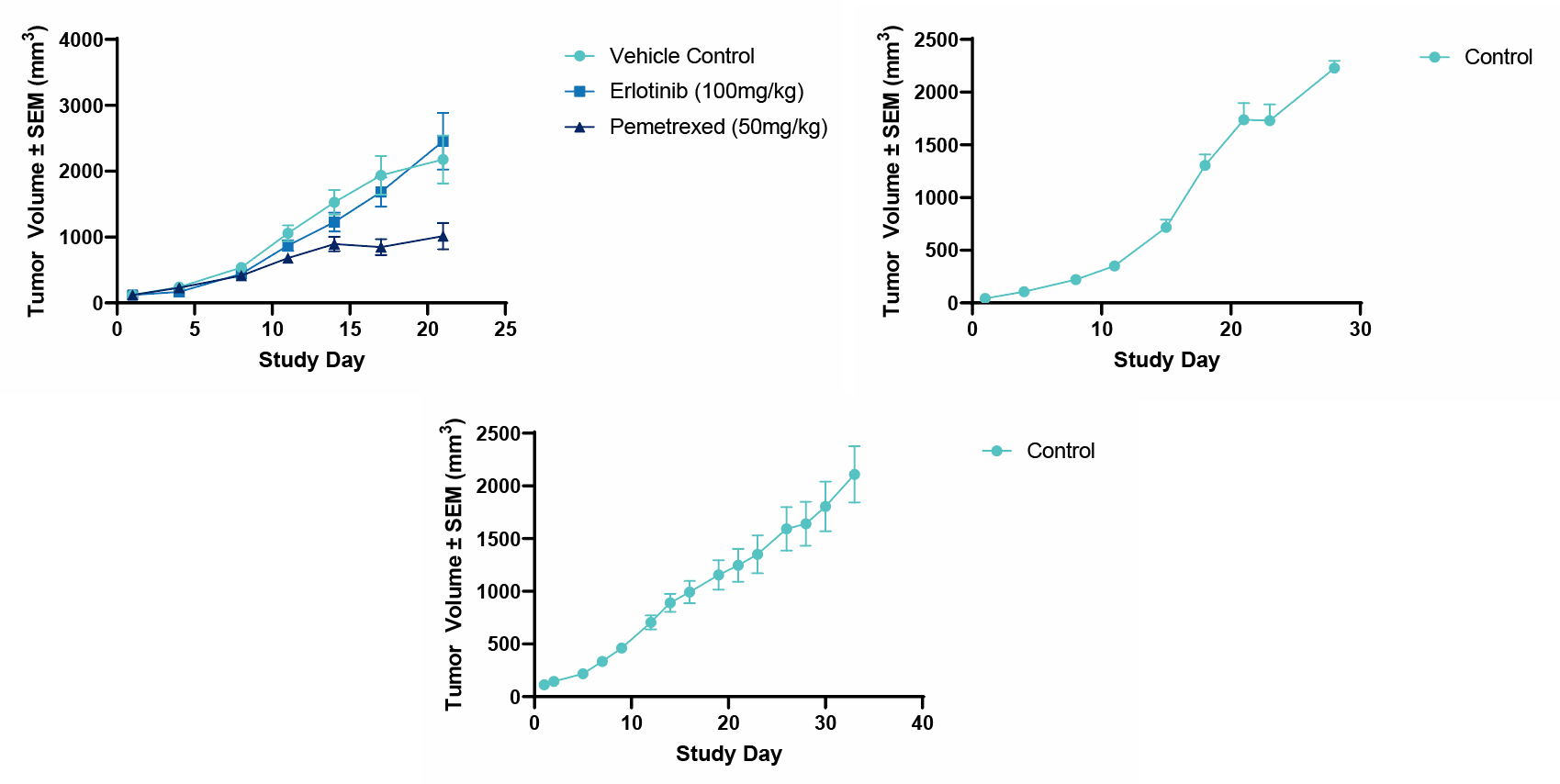NCI-H1975 CDX Model
The NCI-H1975 cell line is derived from human non-small cell lung cancer (NSCLC), the predominant subtype of lung cancer, accounting for about 85% of all lung cancer cases. NSCLC can further be broken down into adenocarcinoma, squamous cell carcinoma, and large cell carcinoma, with varying molecular profiles and clinical behaviors. NCI-H1975 is notably characterized by specific mutations in the EGFR gene, making it a particularly useful model for studying targeted therapies for EGFR-mutant NSCLC. This cell line encapsulates key molecular features and genetic alterations typical of NSCLC patients, accentuating its relevance in preclinical investigations. In vitro and in vivo studies using NCI-H1975 provide crucial insights into tumor growth, metastatic potential, and responsiveness to EGFR-targeted therapies, as well as other therapeutic agents. Researchers widely utilize NCI-H1975 to decipher the molecular mechanisms underpinning NSCLC, evaluate novel therapeutic compounds, and explore mechanisms of resistance, especially in the context of EGFR inhibitors.
Model Details
Cancer Location: Lung
Cancer Type: Non-Small Cell Lung Cancer
Model Name: NCI-H1975
Mouse Strain: Nu/Nu, NSG
Treatment Data Available: Chemotherapy (Erlotinib, Pemetrexed)
NCI-H1975 Growth curves

Growth of subcutaneous NCI-H1975 in Nu/Nu mice (n=8)
Request Additional CDX Model Data
CONTACT US
Get Started.
Have questions about how TD2 can assist with your regulatory needs? Reach out to our expert staff today to get started.


